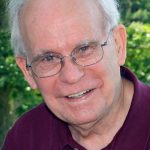 This is Raleigh Mann.
This is Raleigh Mann.
In 20 years of living in South Florida, I was able to witness what overdevelopment does to a community. I saw miles of beautiful beachfront turn into a canyon of high-rise buildings blocking the sun. From the Atlantic Ocean to the Everglades, row upon row of concrete driveways and backyard swimming pools replaced palm trees and open space. And when the space ran out, mountains of sand were dumped to create more land, so we could build farther out into the Everglades.
We saw what happens when public officials get too cozy with those who build, and over time grow less concerned with the consequences of their official decisions.
When we moved to Chapel Hill, we found an attractive community with many lovely neighborhoods, convenient retail stores, and easy access to cultural activity. We found an enlightened community of well-educated people who cared about their town, its schools and quality of life. That’s a good sign. There’s not much wrong with that picture. The old saying “If it isn’t broke, don’t fix it” could apply.
That was 37 years ago.
Today, we live in a community determined to reinvent itself into something more like a copy of the overgrown cities of South Florida and the concrete jungles in the northern Virginia suburbs of Washington, DC.
Of course, we will have some growth, and change is inevitable. Some of it is good. Too much is not. That which is driven by greed is not.
As we come to the end of another year, we await the inevitable approval of major developments on the north side of town, the south side, the west and the east. Fortunately, we have no beautiful Everglades in the path of our construction. But we do have us, the people who must live with the consequences of all this building.
We and our neighbors are this community’s residents, the people who live here, who love our community and who wonder what it is that’s broken that we are so determined to fix.


Comments on Chapelboro are moderated according to our Community Guidelines